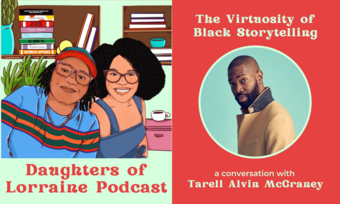Triangle Regional Playwrights
A Brief History
What is turning the Triangle into an incubator for new playwrights?
Clearly, the numbers require some explanation. During the past twenty-five years, some 235 regionally-based artists have seen their new plays, original adaptations and devised texts staged by fifty-seven local companies and venues in the Triangle.
Since the region is defined by three major universities, academe has influenced those numbers—but not as much as you might expect. The majority of organizations presenting local playwrights have been independent companies and venues.
Works written here have been performed in abandoned factories and black boxes—and at the Humana Festival, Steppenwolf Theatre, the National Playwrights Conference, in New York and Edinburgh Fringe festivals, off-Broadway and at London’s Royal Exchange Theatre. They’ve been warmly reviewed by the region’s major papers—and by both the New York and London Times.
At present, about thirty artists are regularly writing, adapting and devising some of this region’s best independent work for stage. And the pace seems to be accelerating: eleven of them staged their first play here within the last three years.
In a sense, these numbers are as much news to us as they are to you. Area and state arts councils and local arts journalists—including myself—have not regularly tracked the number of producing playwrights in the past. Without those metrics, we’ve had little or no sense of the size of a regional scene; no knowledge of its significant growth in the last three years.
At least, not until now.
The answer begins in our history. The folk drama movement started here in the 1920s when Frederick Koch convinced UNC students including Thomas Wolfe to write about ordinary people from the places they grew up for the Carolina Playmakers. The Lost Colony, Paul Green’s 1937 outdoor historical drama, sparked a new theatrical industry in cultural tourism as similar productions sprang up across the country.
But by the time the Playmakers became PlayMakers Repertory Company in 1976, the region’s only LORT member, support for student and regional playwrights had dwindled. In its first twelve years, PlayMakers produced two works with local—but nationally-established—artists: 1982’s Life on the Mississippi with the Red Clay Ramblers, and Southern writer Elizabeth Spencer’s For Lease or Sale in 1988. In the decade following, PlayMakers presented two works generated from within its own ranks: then artistic director David Hammond’s adaptation of The Nutcracker and UNC faculty member Tom Huey’s version of Beauty and the Beast. After them, another decade would pass before regional playwright Mike Wiley’s work appeared on any PlayMakers stage.
Though playwright Mac Rogers cited a relative lack of support in the early 1990s as making UNC more appealing to him, later program enhancements assisted playwrights including Bekah Brunstetter, Madeline Walter and Patrick Link.
Meanwhile, emphasis in Performance Studies on staging non-theatrical literature and performance ethnography has only increased over time. Following earlier faculty works from Paul Ferguson, Della Pollock and Derek Goldman, and student works by Matthew Spangler and Hannah Blevins Harvey, recent programs including the Process Series and Solo Takes On festivals, helmed by Joseph Megel, have helped national, student and regional artists including Howard Craft, Sacrificial Poets, Sam Peterson and Ashley Lucas develop new works.
At Duke University, playwrights Erin Cressida Wilson, Andrea Stolowitz and Neal Bell have nurtured students including Danya Taymor, a resident director at the Flea Theater this fall, and Martín Zimmerman, produced at Tuscon’s Borderlands Theater before his current residency at Goodman Theatre.
Duke has enhanced its faculty with artists from the area’s most prominent independent companies. Jay O’Berski of Little Green Pig Theatrical Concern has presented some of the region’s strongest writers, including Michael Smith, David Turkel, John Justice and Monica Byrne; auteur Ellen Hemphill co-founded Archipelago Theatre.
Other independent theaters have strongly supported regional playwrights. Manbites Dog Theater, the region’s oldest such company, has hosted Jody McAuliffe, Katja Hill and Chaunesti Webb, whose groundbreaking I Love My Hair When It’s Good broke attendance records there in March 2012.
Raleigh’s Burning Coal Theatre has produced other local playwrights, and hosted play development series. Alex Finlayson, who wrote Tobaccoland for the Royal Exchange while living in Chapel Hill, saw her work produced there. “Doing new work is the most important thing a theater can do,” observes artistic director Jerry Davis. “The art forms that rely on a small pool of classic work from a very narrow timeframe or subject matter are calcifying quickly, and becoming less and less valuable to more and more people. Theater cannot go in that direction.”
Raleigh Ensemble Players produced work by Mary Jett Parsley Wrenn before her work appeared at the National Playwrights Conference. Other companies including Bare Theatre, Common Ground Theatre and Carrboro’s ArtsCenter have staged works by area playwrights.
Several factors contribute to such wide-spread interest. Since the region includes two of the ten most educated cities in the U.S., our audiences are probably among the least likely to be satisfied with status quo programming. A robust and largely independent theater scene has grown substantially over the past twenty years here. The community regularly shows up when companies present new works.
“Doing new work is the most important thing a theater can do... the art forms that rely on a small pool of classic work from a very narrow timeframe or subject matter are calcifying quickly, and becoming less and less valuable to more and more people. Theater cannot go in that direction.”
A steady stream of forward-looking faculty and student actors, designers and directors in regional drama programs have also nurtured an ongoing interest in new and experimental material. Given the regional standard of living, a number of graduates don’t leave the area after finishing their degrees. Playwrights find artists here who reciprocate their interest, and they write for them.
Another factor influencing that growth is the press, which has long paid attention to new companies, playwrights and productions in the region. In 2002 Durham’s Independent Weekly established an individual category for local playwrights in its annual theater awards. Though Raleigh’s News and Observer has cut back on its number of theater reviews, regional bloggers including Kate Dobbs Ariail have added to the number of voices in the public conversation on the arts.
Economic and employment factors making parts of the region very affordable places to live have influenced writers moving here due to jobs or family. Two troupes of artists, the Somnambulist Project in the 1990s and Haymaker in 2011, migrated en masse from other locations. The availability of non-union actors, technicians and facilities have likely made productions more fundable here than in other regions.
It bears noting, though, that professional actors and technicians have also routinely found it difficult to make a living wage in a state that’s historically been union-unfriendly. Second jobs remain a necessity in most parts of the theatrical community. “My girlfriend could survive as an actor in Pittsburgh, where a number of companies were willing to pay as close to Equity rate as they can, and there was a way of making theater full-time,” noted David Turkel, who left the region to produce larger-scale works there before beginning his current degree at University of Texas at Austin.
Still, there’s no denying that the region has long welcomed playwrights, and that its interest in them has markedly increased in recent years. Works from many artists beside Parsley, Brunstetter, Wiley, and Webb have already gone out into the world. As their number increases, that reputation is likely to grow.
Editor’s note: A correction has been incorporated into the text, after subsequent research found that our source at PlayMakers Rep had not included all works the company had produced by regional playwrights in the past twenty-five years. The author thanks Scottie Thomas and Angeli Primlani for their assistance.















Comments
The article is just the start of the conversation—we want to know what you think about this subject, too! HowlRound is a space for knowledge-sharing, and we welcome spirited, thoughtful, and on-topic dialogue. Find our full comments policy here
As I'm settling into my time in Chapel Hill, I found this really helpful--thanks!
a big howdy to you, Byron, from San Diego. Thank you for including me in this august history of Triangle theatre.
thanks Byron for the shout out! A lovely article and so nice to read about my former home!
Terrific piece. A wonderfully comprehensive overview. And the press in our area are indeed great and important champions of new companies and new work.
A useful and thorough chronology. Thanks Byron.